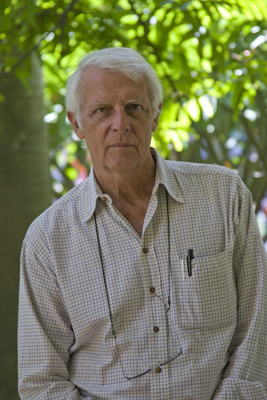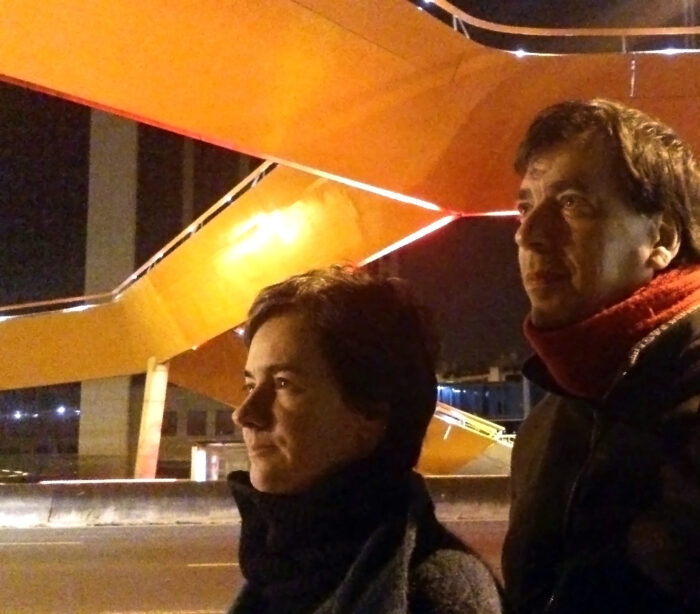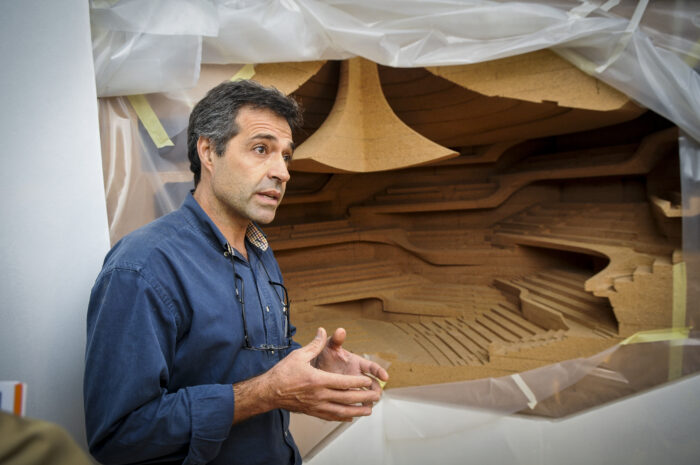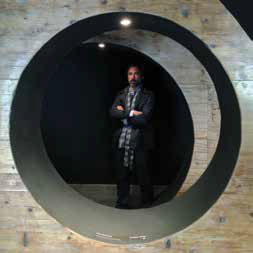A conversation with Arch. José Forjaz

A conversation with Arch. José Forjaz
'I am an internationalist. Only like that we can be consistent with a society that we want closely integrated. I feel like an architect. I think our homeland is where we work. ’
You’ve studied in Lourenço Marques, Oporto and New York and worked in Swaziland and Botswana, before settling in Mozambique. What did this journey give you and what are the main differences between Portugal and Africa?
When I was in New York taking the master, my friend Pancho Guedes excited me to take an office in Swaziland. So I went from New York to Mbabane, a city that had fewer people than the block where I lived. But it just gave me the notion that the world is all the same, people are very similar and the needs and problems are the same. There is no difference between working in Mbabane or New York, except for those who want to make a public career. Between Portugal and Africa, the differences are basically the historical-cultural moment. Portugal is a country perfectly integrated into the universal culture. It does not need to assert itself, it has its identity well defined, it plays in the cultural, political, social and technological spheres. Africa is not there yet. People need to make the so-called self-esteem culture, as if they need to start from self-esteem to achieve values, instead of the other way around. And there is still the question of blackness, of complexes. Portugal does not live these complexes, does not need to self-esteem and already knows how to self-criticize. Africa will get there.
Mozambique has a lot of Portuguese architecture but, since independence, the buildings have been poorly rehabilitated. Do you know why?
I know, there is no money. It is not that people do not want this, but there is no money to have water or electricity, so the Mozambican middle class does not have the economic conditions to allow them to recover these structures. There is no money to cover the holes in the streets, nor to repair the elevators, so people don’t have to climb 15 floors of stairs to go to work, let alone repair a window. The country is one of the poorest in the world. Mozambique’s per capita budget is incomparably smaller than Lisbon’s. Maputo has a budget of around four dollars per inhabitant, to manage the city, while Lisbon will have more than a thousand. Its path is inseparable from the exercise of an intervening citizenship.
What was it like to work for the Government of Mozambique?
Living in a fascist colonial regime, from a very young age, I felt that things were not right and my emotional and political associations were almost inevitably left-wing. There were three possibilities: being a fascist, a communist or a progressive Catholic. I was, and am, an atheist, so I didn’t think I would find the answers there. The left option was almost imposed because it was the only one that fought against an unjust and totalitarian regime. For various reasons, I did some work that was appreciated in Africa and at one point I joined the liberation movement in Mozambique. After the 25 de Abril, I was invited to return to Mozambique to help build the country. It was an irrefutable invitation because there were very strong emotional connections and it turned out to be job of amazing compensation, that continues to let me sleep well every night.
What do you have to say about Kofi Annan’s invitation to carry out his home project in Accra, Ghana?
There is not much to say. When he came to Mozambique for the first time, he stayed in a house that I had designed. The government had ask me to design houses to accommodate the presidents of visiting countries who met here from time to time. I designed and built four houses for this purpose. Kofi Annan stayed at one and, as he liked it a lot, when he thought of making a house for himself, he said he wanted that architect to design it. That’s how it happened. I had a chance to be with him several times, he is a person of great human qualities and so it was a pleasure to work for him.
José Mendonça wrote in Artes & Letras, about your exhibition “Ideas and Projects”, that the architect José Forjaz “is considered by many to be a landmark of Portuguese architecture”. Do you feel recognized in Portugal?
I think so. I have been invited to do exhibitions and conferences; this month a book was published about a conference I gave in the University of Minho; the Order of Architects made me an honorary member; and just last week a friend sent me an email saying that he had given a talk about me at the University of Aveiro. So I don’t have the feeling of being forgotten, at least by the people that matter. I’m sorry I never gave a lecture at the School of Fine Arts in Oporto, where I’ve graduated, but I realize that these are circumstantial aspects. I feel comforted by everything that has been done to me in Portugal. And I hope I won’t be taken as a fashion hero, which is an evil that affects world architecture. It is a dangerous cult because the younger architects just want to be known. It is thought that if one is well known it is because one is a good architect, but I suspect that if one is well known, one must be a bad architect.
Do you feel more Portuguese or Mozambican?
I am not a patriot, I am increasingly internationalist. I think that this is the only way to be consistent with a society we want closely integrated and that has to remove political, economic and social barriers. Ecosystems do not respect these boundaries, so there is no reason to separate Men. I am anti-nationalist and I am convinced that these divisions are negative devices, counterproductive and out of season. Since technological evolution, above all, they are increasingly wrong. I can sing the national anthem but I don’t feel connected to it. I feel more and more as an architect. I’ve worked in several countries and after being there, even if it was just for three weeks, I thought I could perfectly live there. I think our homeland is where we work. I am a citizen of the world.
This interview is part of the Artes & Letras Magazine # 29, March 2012
Partially automatic translation from portuguese: some expressions may differ from their actual meaning.
News & Interviews
A conversation with Arch. Telmo Cruz and Arch. Maximina Almeida
'When architects manage to correctly do the exercise of building a city, this is valuable by itself. We feel great in the city. ’ Read more
A conversation with Arch. Bernardo Pimentel
‘This studio works as a futurology of what is happening around the world. Models are still necessary for the projects and we like to be treated as artisans.’ Read more
A conversation with Arch. Jorge Sousa Santos
'I think I am an architect due to the influence of Lego (…) As for architecture, there is an idea that I have been pursuing which is that a building is an object that cannot be decomposed.' Read more




